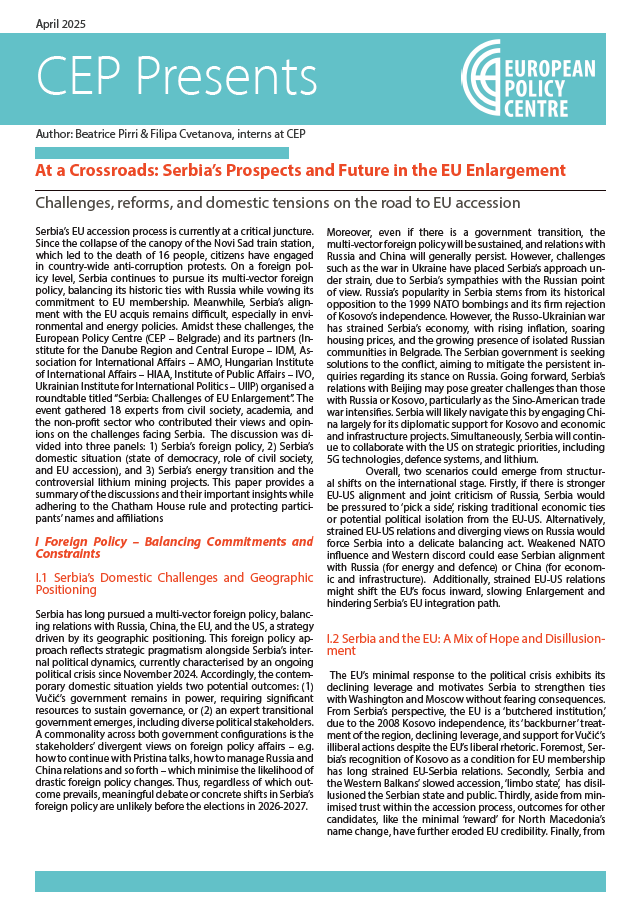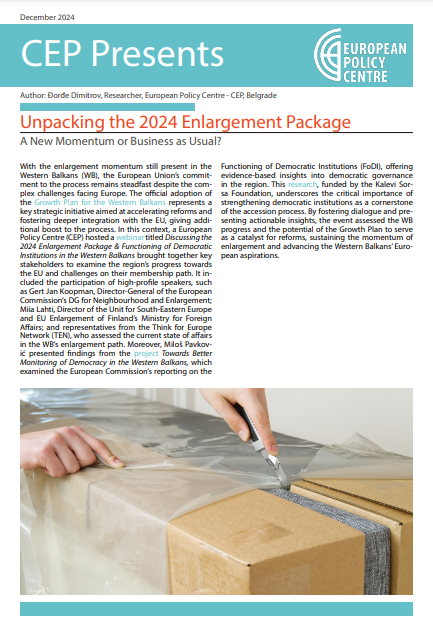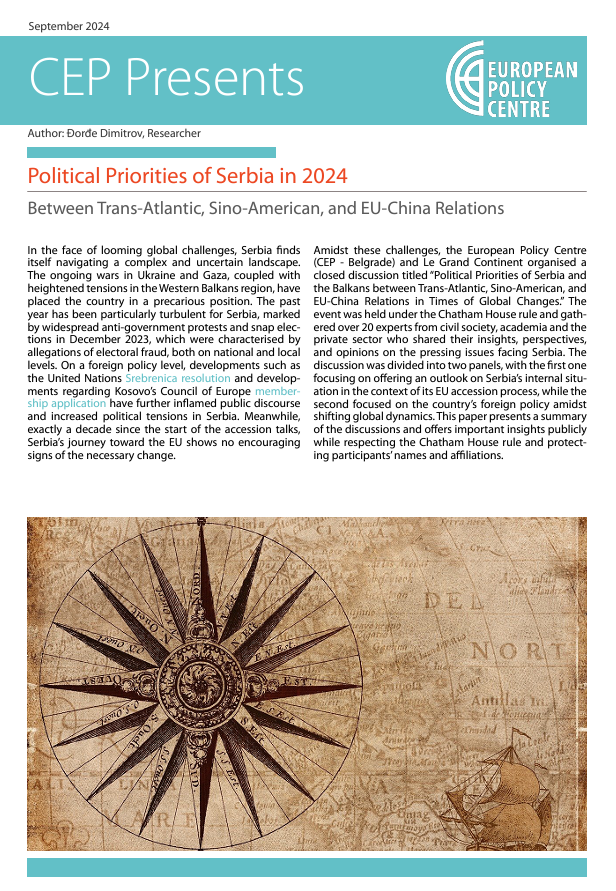Headquarters: Svetog Nauma 7, 11000
Office address: Đorđa Vajferta 13, 11000
Phone:: +381 11 4529 323
The outbreak of the war in Ukraine has dramatically changed the geopolitical map of Europe. With aggression against the sovereign and independent European state, Russia has drawn a line and isolated itself from peaceful and free Europe.
Former Soviet republics such as Ukraine, Moldova, and Georgia rushed into the embrace of the European Union (EU), unwilling to remain behind Russia’s newly erected iron curtain. In the meantime, Western Balkan (WB) countries are continuing the European integration process, which is most clearly reflected in opening accession talks with Albania and (conditionally) North Macedonia, as well as in granting candidate status to Bosnia and Herzegovina (BiH). Simultaneously, changed geopolitical circumstances brought their alignment with the EU Foreign and Security Policy to the top of the agenda. In such a context, tracking where the WB countries stand on their path to the EU gains further importance.
In order to grasp where do the WB6 stand in 2022 in terms of their reform pace and overall preparedness for membership, while acknowledging the importance of the WB partners for Europe to be completed and united in the time of ongoing geopolitical and economic crisis, CEP hosted the event “Unpacking the Enlargement Package 2022: EU Enlargement to the Western Balkans in the light of the war in Ukraine” on 7 November 2022, together with its regional partners gathered in the Think for Europe Network (TEN) and in cooperation with the Directorate-General for European Neighbourhood Policy and Enlargement Negotiations (DG NEAR). Acting Director-General, Maciej Popowski, presented the Package and highlighted the key results, following TEN members presenting their views, comments and recommendations from the perspective of their country. The aim of this discussion was to present to the public the key findings of the Commission’s annual reports, clarify and make them more transparent. By communicating the Commission’s findings to citizens and decision-makers, the goal is to truly prioritise the implementation of reforms that are required for EU membership.


